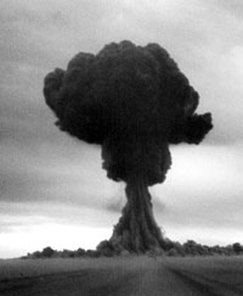
The treaty was first started in 1958 by Frank Aiken, the Irish Minister for External Affairs. The treaty was opened for signature in 1968, and became effective in 1970. The original treaty was only given force for 25 years. In 1995, the parties met for a Review Conference in New York City, and decided by consensus to the unconditional, and indefinite extension.



 RSS Feed
RSS Feed